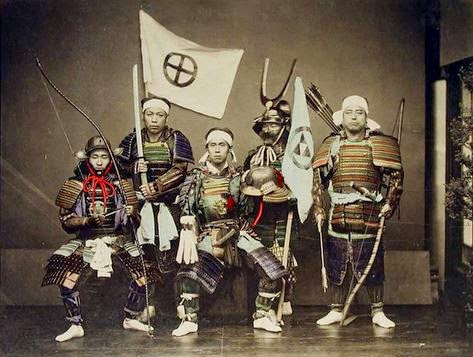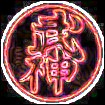Ever play that word game called Mad Libs, where you’re given
a short story and scattered throughout are blanks for you to fill in? You pick a noun, verb, adverb, adjective,
etc, and when it’s finished, you’re left with a funny story. Here’s an example:
“Charlie was a (noun) who loved to eat (noun). He particularly enjoyed the (color)
ones. One day, Charlie was (verb) and
some friends came by to visit. He
offered them a (noun), but didn’t have enough.
But, one of the friends brought a (noun) and they all had a great time
(verb). After they were finished, they
all decided to (verb). Charlie
accidentally (verb) really (adverb). He
was so (emotion) over it.”
If you fill in the parenthesis with the requested kind of
word (noun, verb, etc), then read it back, you will have a story that might be
a bit crazy, maybe funny, or even one that just makes sense. But, hand it to someone else, and you
generally will get a completely different story.
I use this analogy to describe what learning budo is
like. In the beginning, we have a blank
page. We receive words to start building
the story, but there are blanks. It is
human nature to want to fill in the blanks in a way that makes sense of what we’re
learning. However, as you can see, what
we choose to fill in those blanks can lead to very different outcomes,
sometimes silly and nonsensical, but sometimes quite logical – although still
different from the actual story.
To take up the path of a budo deshi (budo student) is to
seek to fill in the blanks, not with our own imagination, but with those things
which were originally there. We are
trying to uncover the story, not create our own. Although, it is easy for us to do and we’re
actually hardwired to do it, even on very subtle levels. We hate incompleteness. We hate to not have the whole story. So, we find ourselves thinking ahead, making
assumptions, relying on our own logic and reasoning, instead of patiently
working towards filling in the blanks with what is supposed to be there.
So, what is the danger of using one’s own logic and
understanding to come to completely rational conclusions, to fill in the blanks,
and arrive at a story that makes sense?
Because it’s not about just making sense out of
something. It’s about learning what we’re
supposed to learn, when we’re supposed to learn it. In a training context, we aren’t training to
beat up our Uke (partner or receiver of the technique). It’s not even about the “win”. It’s about unlocking the lessons, sharpening
the skills, of those pieces within the kata /waza or form. Everything is a gateway to something
else. Everything has layers to uncover
that lead to new layers. But, when we’re
too busy making our own story, we are off on our own path instead of the path
that opens the gateways and reveals the next layer in our understanding. We are not following in the footsteps of the
masters who have walked the very same path before us. In so doing, we evolve along our own,
uncharted lines.
In many things, exploring uncharted paths, taking risks and getting outside the box is a good thing. But, you have to consider the purpose of budo – it is about war and survival. The stakes are high, higher than anything else in life. If you were a soldier in Feudal Japan, your life expectancy on the battlefield was high. So, anytime you could learn from someone who had a technique that proved itself in battle, you would learn it as completely and accurately as you could. You would practice it over and over, exactly as you were taught, until it became a part of you. Then, when you were deployed into battle, you were ready to use it and hopefully it would give you a percentage chance of living another day. You wouldn’t risk your success on your own imagination, or someone who hasn’t proven their technique in battle. The risk would be far too high.
When I was in the Army, I got to know a new 2nd Lieutenant. We called them “Butter Bars” for the single,
rectangular brass bar they wore for their rank.
He told me that the single most important lesson he was told came from
his CO (Commanding Officer). The first
day he arrived, the CO called him in and gave him an introduction. Of all the things said, what stuck the most
was when the CO looked him in the eye and told him, “If you want to get crap
done right, if you want to go into war and come back in one piece, find the NCO
with the most hash marks on his sleeve, buy him a drink and listen to what he
says.”
The reason this was such important advice simply had to do with experience. The NCO already had completed one or more enlistment terms. He may have already done one or more tours in a combat zone. He probably had enough medals to fill up a trunk. Even though the 2nd Lieutenant out ranked him, even though the NCO had to salute and follow the orders of even the newest Butter Bar, the NCO had the knowledge, experience and training that was proven to work. So, it would benefit the new Lieutenant to follow closely his advice and direction.
The best officers listen to and take the advice of their NCO’s. They may out rank, they may give direction on
the larger purpose or outcome, but the actual nuts and bolts of how things work
the best, the method to make things happen, all falls to the experience,
training and knowledge of the NCO’s.
Is there any difference between that and martial arts which have survived through all the wars in Japanese Feudal history? How many martial artists act more like the bright eyed, young Lieutenant just out of college and try to dictate what they think would work in actual war, instead of relying on the wisdom of those who have actually survived it?
We do not have the benefit of spending time with those
Japanese warriors who lived and fought during the Warring Periods. But, what we do have are the densho, the
words and drawings which have been codified into scrolls. More importantly, we have the kuden, or
verbal teachings, that have been passed from person to person throughout the
generations. The wisdom is still there,
if we can let go of our own ego enough to listen. When we do that, we uncover the secrets, the
nuggets of learning, and are able to cross the gateways to deeper understanding
of the art we claim to be students of.
If we’re off on our own imagination, filling in the blanks
ourselves and creating our own stories, we fail to connect to that foundation
that existed long before we took our first breath. We fail to connect to those who have more
hash marks on their sleeves than we probably ever will.
And, as a result, when life and death matter, we may be
following our created path right into our own death.
My advice, from an old, crusty budo deshi who has learned from more mistakes than I care to remember? Be a humble student, not your own expert, and stay on the path already forged. You'll uncover a richness of the budo arts that you would never find on your own.






